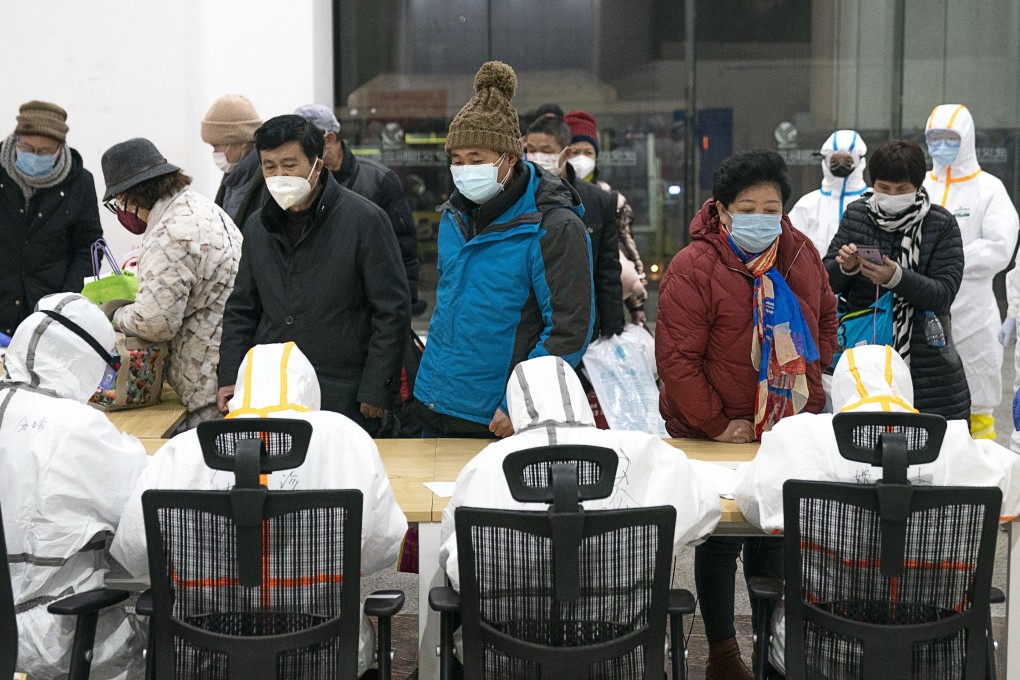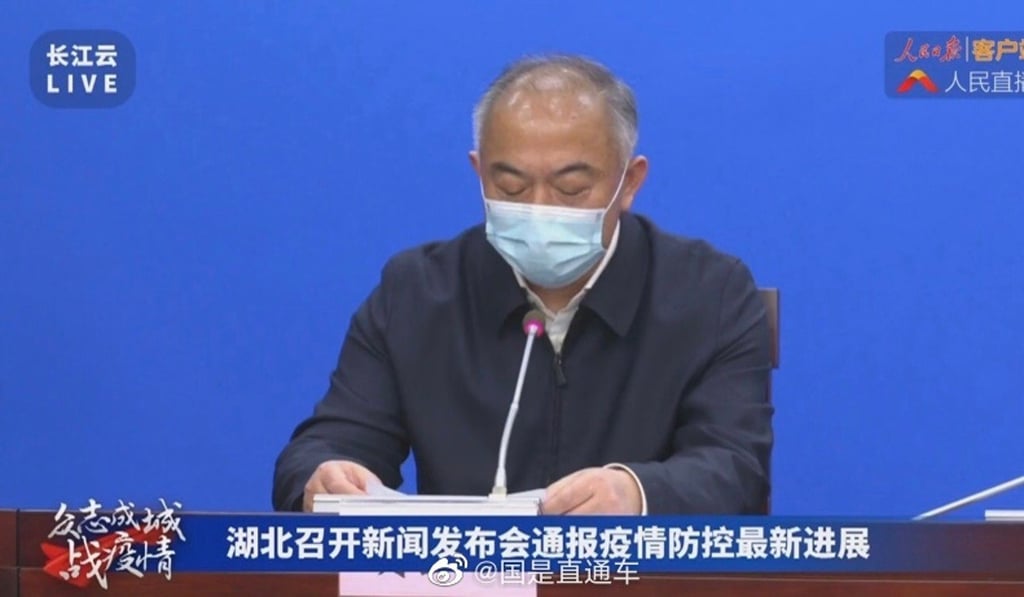Coronavirus: Wuhan Communist Party official apologises for failure to provide patients treatment
- ‘We are in pain and feel regrettable that a lot of the patients … were unable to receive proper treatment,’ Hu Lishan says
- Lishan, the deputy secretary of the Communist Party in Wuhan, made his remarks as emergency hospitals are built and researchers race to find a cure

Speaking at a news conference on Wednesday evening, Hu Lishan, the deputy secretary of the Communist Party in Wuhan, said that the city added more than 1,900 confirmed cases of infection and more than 780 suspected cases that required quarantine on Tuesday, but that there were only 421 vacant hospital beds available for the patients.
“The public has criticised us a lot … why?” said Hu. “It was because some of our work was not done well.” What have we not done well? At present, the contradiction between supply and demand of hospital beds has remained conspicuous,” he said.
“Honestly, we are in pain and feel regrettable that a lot of the patients who have been confirmed infected or were suspected to have contracted the coronavirus were unable to receive proper treatment at hospitals,” Hu said. “This problem definitely has remained unresolved.”

Wuhan officials have been under heavy criticism for the government’s slow response to the coronavirus outbreak, which originated in the city and has since spread across the country and around the world.